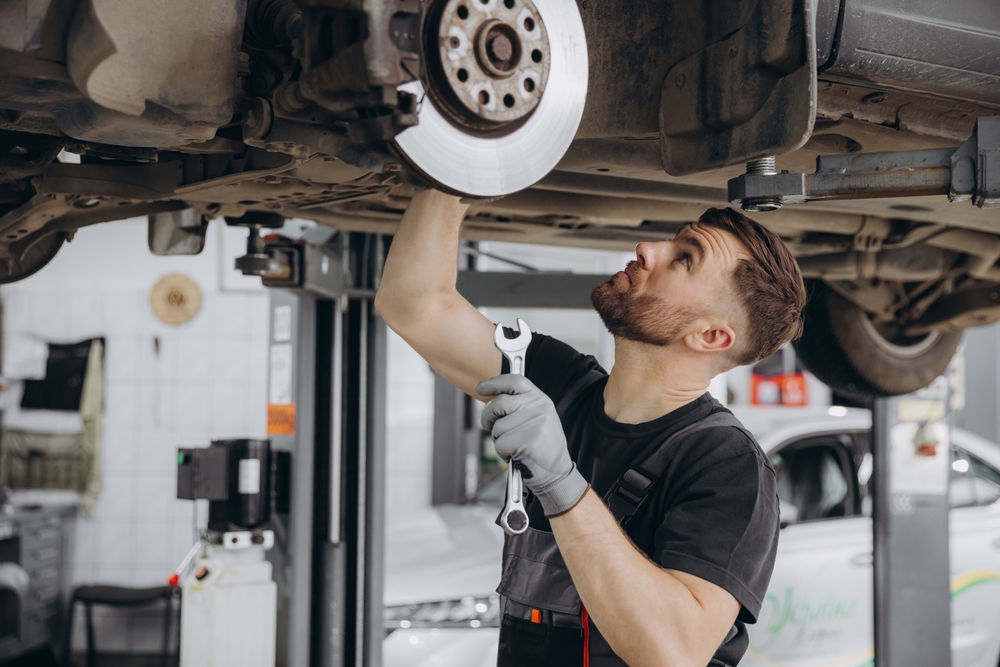
Ever wondered how mechanics seem to know when a customer isn’t telling the whole truth? If you’ve ever felt nervous handing over your car keys, you’re not alone. Mechanics encounter a wide range of situations, from honest mistakes to tall tales. Because car repairs can be expensive, some folks try to bend the truth, hoping for a cheaper fix. However, seasoned professionals have developed sharp instincts for detecting falsehoods. Understanding how mechanics detect lies can help you build a more honest relationship and potentially save money in the long run.
1. Listening for Inconsistent Details
One of the first ways mechanics detect lies is by listening closely to the story you tell. If your explanation of what happened to your car keeps changing, that’s a red flag. For example, you might say the “check engine” light came on after you filled up with gas, but then later mention it started after a road trip. Mechanics are trained to identify these inconsistencies. They know that the real story usually lines up with the symptoms the car is showing. When your story doesn’t match what they see, they get suspicious.
Mechanics hear hundreds of stories every month. Over time, they develop a mental checklist for common problems. If your account doesn’t fit the usual pattern, they start digging deeper. That’s how mechanics detect lies before you even finish explaining what’s wrong.
2. Checking for Physical Evidence
Mechanics don’t just rely on what you say; they look for proof. If you claim you always get your oil changed on time, but your oil is thick and black, something doesn’t add up. They’ll check for signs of wear, leaks, or recent repairs. Even small details, such as a missing oil change sticker or a recently wiped engine, can raise questions.
For example, if you say your brakes suddenly stopped working with no warning, but they find worn-down pads and rotors, it suggests neglect rather than sudden failure. Mechanics know the difference between normal wear and tear and something that doesn’t make sense. They use this physical evidence to confirm or challenge your story.
3. Watching Body Language and Behavior
Body language can reveal more than words. Mechanics notice if you avoid eye contact, fidget, or seem overly defensive. These signs aren’t proof of lying, but they can make a mechanic more alert. If you seem nervous when asked simple questions, it might suggest you’re hiding something.
Some customers try too hard to sound knowledgeable, throwing around technical terms incorrectly. Others may minimize the problem, hoping for a cheaper fix. Skilled mechanics look past the words and pay attention to how you act. Often, these subtle clues help them detect lies before you finish your story.
4. Comparing Your Story to Diagnostic Results
Modern cars come with sophisticated diagnostic systems. When you bring your vehicle in, mechanics can quickly plug in a scanner and get a readout of error codes and data. If your explanation doesn’t match what the computer says, that’s a major clue. For example, if you insist the car was running fine until yesterday, but the system shows weeks of misfire codes, your story doesn’t hold up.
This is a key way mechanics detect lies. The data from your car doesn’t lie. By comparing your words to what the computer reports, they can quickly spot exaggerations or falsehoods. It’s hard to argue with technology, and most experienced mechanics trust their diagnostic tools as much as their own eyes and ears.
5. Drawing on Past Experience
With years of experience under their belts, mechanics have seen just about every trick in the book. They remember the customer who “just bought the car” but somehow knows every detail about past repairs. Or the driver who blames the shop for a problem that clearly took months to develop. Mechanics use these past encounters to spot patterns and recognize when something feels off.
This experience is invaluable. It means they can often detect lies before you even finish describing the issue. If your story reminds them of a past situation where someone was less than honest, they’ll start asking more pointed questions.
6. Asking Detailed Follow-Up Questions
When a mechanic suspects you’re not being entirely truthful, they ask more specific questions. They might inquire about the last time you had maintenance, who performed the work, or what type of oil you use. If you stumble over the details or your answers don’t line up with the evidence, it’s another sign you might not be telling the whole truth.
This is a gentle but effective way to catch a fib. Most people who are making up a story can’t remember all the little details. By probing deeper, mechanics detect lies and help ensure they’re addressing the real problem with your vehicle.
Building Trust with Your Mechanic
Honesty is the best policy when it comes to car repairs. Mechanics detect lies because they want to fix your car correctly the first time. Providing them with accurate information saves time, money, and frustration for both parties. If you’re upfront about what happened—even if you made a mistake—you’re more likely to get a fair assessment and avoid unnecessary repairs.
Building a relationship with a trustworthy mechanic can pay off in the long run.
Have you ever tried to bend the truth with your mechanic? Or caught someone else doing it? Share your story in the comments below!
What to Read Next…
- 10 Clues Your Mechanic Might Be Lying To You
- 9 Signs Your Mechanic Is Overcharging But Legally
- 8 Signs Your Mechanic Is Quietly Upselling You Without Saying A Word
- 10 Things Your Mechanic Can Legally Do Without Telling You
- 9 Car Brands Losing Trust With Mechanics
The post How Mechanics Detect Lies Before You Finish Your Story appeared first on Clever Dude Personal Finance & Money.







